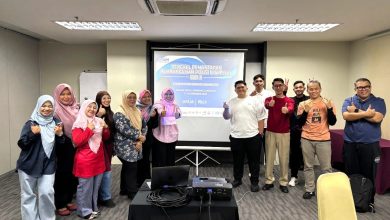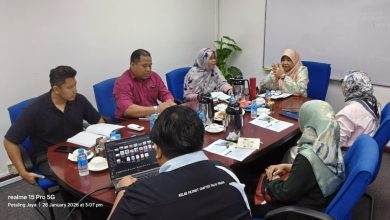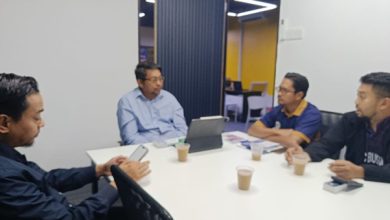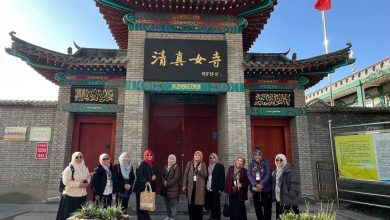SE-Budi Hasanah Series Three strengthens language proficiency, student resilience and social entrepreneurship in the Pulau Tuba community
Pictures by SE-Budi Hasanah Team
PULAU TUBA, 14 July 2025: Universiti Utara Malaysia (UUM) continues to strengthen its commitment to rural education through the third session of the SE-Budi Hasanah Programme, held from 11 to 12 July 2025 at SMK Langkawi, Tuba.
This initiative forms part of a series of 15 fully in-person sessions planned throughout 2025, with the aim of enhancing students’ English language proficiency in line with the Common European Framework of Reference (CEFR), while simultaneously nurturing character development and social awareness through a community-based learning approach.
The programme is fully funded by the Hasanah Special Grant (HSG 5.0) with an allocation of RM361,000, and is jointly implemented by the Cooperative and Entrepreneurship Development Institute (CEDI) and the School of Languages, Civilisation and Philosophy (SLCP), UUM. Management and logistics are supported by UUM Leads Sdn. Bhd.
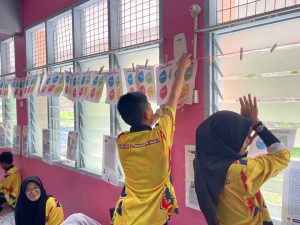
Centred around the theme “Haiya ‘Ala Falah” (Come to Success), this session focused on cultivating student resilience – the ability to recover from setbacks, build confidence, and develop personal courage. Through the story module “Ahmad’s Challenge”, students were encouraged to reflect on their own life experiences and embrace the understanding that success lies not in perfection, but in having the courage to try. The two-day session involved a total of 220 students from Form 1 to Form 5, guided by trained UUM student mentors and academic facilitators.
English language learning was further enriched through Language Arts components, in which students creatively explored vocabulary and sentence structures. One of the session’s highlights was the motivational bookmarks activity, where students designed bookmarks featuring positive words and inspirational English phrases. This not only reinforced their language skills, but also provided a platform for students to express their values, dreams, and confidence. The activity culminated in a peer-sharing session, during which students presented their work, embodying the resilience and courage the programme strives to instil.
In addition to teaching and learning activities, the UUM team conducted a walkthrough of the school’s facilities and held a strategic dialogue with school leaders and English language teachers. Discussions centred on potential future collaborations, including increased parental involvement, co-development of learning modules, and extended student participation in community-relevant educational initiatives beyond the classroom.
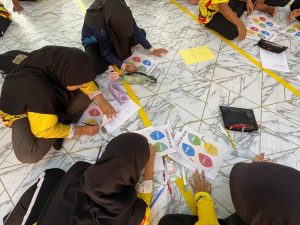
A distinctive feature of the programme is the plan to introduce a mini social entrepreneurship project in the villages of Pulau Tuba. Students will be guided to identify local issues, propose viable solutions, and present their ideas in simple English. This real-world learning opportunity is designed to enhance not only their communication skills, but also their leadership, empathy, and civic responsibility.
The integration of this component reflects the aspirations of the National Education Philosophy, the Malaysia Education Blueprint (PPPM), and supports the Sustainable Development Goals (SDGs), particularly SDG 4 (Quality Education), SDG 8 (Decent Work and Economic Growth) and SDG 11 (Sustainable Cities and Communities).
Through its structured Community-Based Language Learning (CBLL) model based on the pillars of empower, engage and elevate, SE-Budi Hasanah is not only a language intervention initiative – it positions students as agents of change capable of giving back to their communities. With continued support from Yayasan Hasanah, the Langkawi District Education Office, Koperasi Kepulauan Tuba dan Selat (KOPTUBAS), and other local collaborators, UUM is optimistic that Pulau Tuba will emerge as a flagship model for sustainable and inclusive rural education in Malaysia. – Nur Alya Ariffah Mohd Ruzlan


